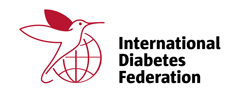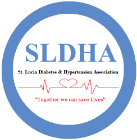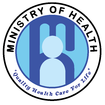.jpg) At present, type 1 diabetes cannot be prevented. The environmental triggers that are thought to generate the process that results in the destruction of the body’s insulin-producing cells are still under investigation.
At present, type 1 diabetes cannot be prevented. The environmental triggers that are thought to generate the process that results in the destruction of the body’s insulin-producing cells are still under investigation.
While there are a number of factors that influence the development of type 2 diabetes, it is evident that the most influential are lifestyle behaviours commonly associated with urbanization. These include consumption of processed foods, for example foods with a high fat content sugar-sweetened beverages and highly refined carbohydrates. At the same time, modern lifestyles are characterized by physical inactivity and long sedentary periods. Together, these behaviours are associated with an increased risk of being overweight or obese and the development of type 2 diabetes.
A number of prevention programmes have shown that modifying such behaviours, by eating healthier foods and increasing physical activity, can greatly reduce the risk of developing type 2 diabetes. In order to halt the increase of type 2 diabetes, whole populations must change their lifestyle behaviours by modifying diet and increasing physical activity levels. To support this, IDF has reviewed the evidence on which types of food predispose to type 2 diabetes and has released nine recommendations for a healthy diet for the general population.
 IDF recommendations for a healthy diet for the general population
IDF recommendations for a healthy diet for the general population
- Choosing water, coffee or tea instead of fruit juice, soda, or other sugar sweetened beverages.
- Eating at least three servings of vegetable every day, including green leafy vegetables.
- Eating up to three servings of fresh fruit every day.
- Choosing nuts, a piece of fresh fruit, or unsweetened yoghurt for a snack.
- Limiting alcohol intake to a maximum of two standard drinks per day.
- Choosing lean cuts of white meat, poultry or seafood instead of red or processed meat.
- Choosing peanut butter instead of chocolate spread or jam.
- Choosing whole-grain bread, rice, or pasta instead of white bread, rice, or pasta.
- Choosing unsaturated fats (olive oil, canola oil, corn oil, or sunflower oil) instead of saturated fats (butter, ghee, animal fat, coconut oil or palm oil.
A particular threat in terms of the associated risk of developing type 2 diabetes is the consumption of high sugar foods, particularly sugar-sweetened beverages. In 2014, the World Health Organization (WHO) issued new recommendations to limit sugar intake. IDF fully supports these recommendations and in response published the IDF Framework for Action on Sugar.




